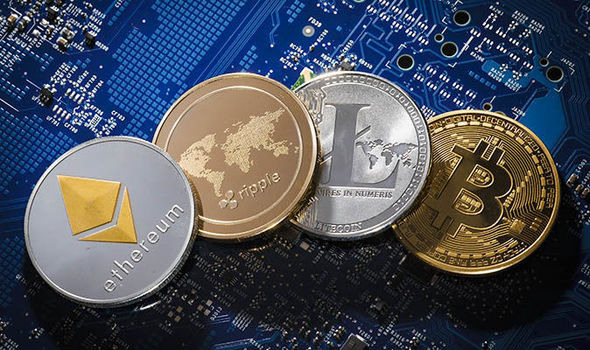National Cryptocurrencies – A Viable State Alternative to the Established Norm?

Cryptocurrency appears to be gaining traction among governments seeking to establish their own digital currencies, despite questions regarding the potential volatility associated with it. Currently, the countries that have already created digital currencies include China, Ecuador, Senegal, Singapore, and Tunisia, with Estonia, Japan, Palestine, Russia, and Sweden potentially following suit. Even a small country like the Marshall Islands has announced its intent to create its own digital currency in order to boost its economy, and will be on part with the U.S. dollar as a form of payment. What seemed like a novel thought exercise as to whether cryptocurrency could be a legitimate alternative to the established norm appears to be an option that governments are more closely considering (Note: find out the latest crypto legislations and projects on crypto news.). In fact, some have speculated that further adoption of the country-specific cryptocurrencies could have serious implications for the established international monetary system.
Whether that transpires remains another intellectual exercise in the possibilities of what “could-be” one thing is clear – states on the receiving end of stringent economic sanctions are turning to cryptocurrency as a way to assuage these penalties. One of these countries is Iran, who is reported to be very interested in creating a digital currency, a major shift from its initial stance on banning banks from dealing in cryptocurrency . According to one news source, the Secretary of Iran’s Supreme Council of Cyberspace envisaged the use of cryptocurrencies to “smoothen trade” between Iran and its partners in the wake of renewed U.S-imposed sanctions. The same individual revealed that a state-backed cryptocurrency was accepted as an industry in the government and related organizations such as the Ministry of Communications and Information Technology, the Central Bank, the Ministry of Energy, the Ministry of Industry, Mining, and Trade, and the Ministry of Economic Affairs and Finance.
Iran is not alone in this endeavor. Cryptocurrencies have been leveraged by some countries in order to evade sanctions imposed on them by some in the global community as such transactions may transpire without oversight or tracking. Venezuela has been a leader in creating a government-supported cryptocurrency to accomplish this objective. In December 2017, Venezuela created the “the Petro” – a cryptocurrency intended to supplement Venezuela’s bolivar fuerte currency and help overcome U.S. sanctions. Another example is North Korea. Although it has not yet created its own cryptocurrency, the North Korean regime has been accused of plundering cryptocurrency exchanges in order to steal vast sums of money to take the sting off of the sanctions that it faces.
The question remains – how successful are cryptocurrencies in achieving the goals of sanction-relief for penalized governments? To be fair, the success or failure will largely be tied to a government’s solvency and stability and its ability to effectively be used as a positive instrument. In the case of Venezuela, all indications point to a failure. According to recent news reporting, the oil reserve-backed cryptocurrency is hardly used with the government showing no indication of tapping into its oil reserves as it had initially promised. To date, the Petro wasn’t found on any major cryptocurrency exchanges and wasn’t accepted by retailers, according to the same source. In this case, the government’s lack of follow-through on its plans has called some to question if the creation of the Petro was nothing more than a stunt or a scam.
Conversely, the announcement of a possible Iranian cryptocurrency has been met with more optimism. The Iranian government’s announcement that it was going to legalize cryptocurrency mining led to favorable response, pushing the price of Bitcoin to more than $26,000 on a local exchange. What separates Venezuela’s reality from Iran’s largely rests in the governments themselves and how they go about planning and executing cryptocurrency. According to one Venezuelan businessman involved in cryptocurrency purchase, as of late August 2018, there was no evidence of the Petro in circulation, its smart contracts, rules of the token, or its blockchain. Such developments nine months after its supposed launch is disappointing to say the least. If Iran wants to embrace a national cryptocurrency it will have to ensure it doesn’t follow Venezuela’s footsteps.
As more states – in addition to the rogue governments already mentioned – explore the possibilities of adopting cryptocurrencies, there is much speculation as to how it will affect the international monetary system currently in place. The current system relies on a slew of internationally agreed-upon rules, norms and institutions that let countries trade and invest in each other. Cryptocurrencies, on the other hand, rely on decentralized control typically using blockchains that serve as a public financial transaction database. The immediate concern is that if enough countries set up their own digital currencies, they could operate outside the existing framework of global central banks. Some including the head of the International Monetary Fund believe cryptocurrencies will indeed replace banks and existing financial systems by eliminating the necessity for intermediaries and third party service providers in the future. Other experts believe cryptocurrencies are going to displace roughly 25% of national currencies by 2030.
That said, cryptocurrency is susceptible to volatility and risk, and the scalability of mining cryptocurrency doesn’t seem feasible, at least for the present. However, these challenges can and likely will be addressed over time. For rogue states seeking sanction relief, cryptocurrency has yet to prove its ability to deliver. And that maybe the first litmus test for other nation states – seeing if this hot new commodity is the viable alternative so many believe it is. Venezuela’s experiment has all but ended. Iran is next up on the block.
For more information, I strongly recommend reading “The ultimate beginners guide to cryptocurrency” that covers pretty much everything someone new to the crypto scene would want to know.
This is a guest post by Emilio Iasiello
Tags: Crypto, Cyber, Nation State


